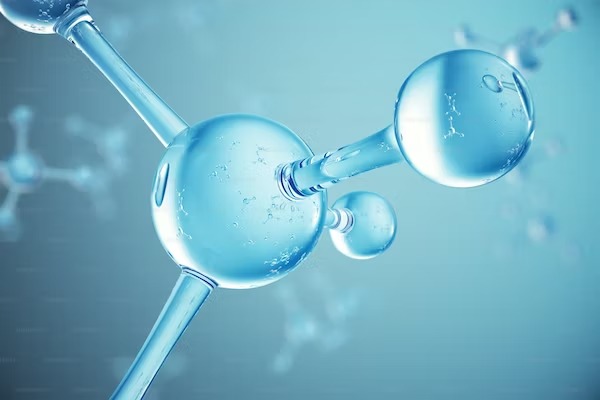Nanoparticles are substances whose dimensions range from 1 nanometre to 100 nanometres and can be of any shape or colour. Simply put, nanoparticles are very tiny and ultra minute substances that are not visible through naked eyes and have their size range from 1 nm to 100 nm, where 1 nanometre is equal to one billionth of a metre. In fact, more than 500,000 nanoparticles can sit on a cross section of a human hair. Interestingly, If we compare the width of a human DNA helix that is 2nm to the size of a human body it is equivalent to the comparison of a human body to the size of the sun.
Nanoparticles are very different from bulk particles as they show very different Optical properties, Electrical properties, Mechanical properties, Magnetic properties and Catalytic properties.
Nanotechnology: a budding new technology
Nanotechnology is the development and use of techniques which are targeted to study physical phenomena of nanoparticles and to develop new devices and material structure using nanoparticles. Similarly, Nanoscience is a term which identifies as the study and application of extremely tiny things that can be further useful for other science related fields. Presently, Nanotechnology or Nanotech is developing rapidly with scientists and developers deliberating about every possible field where Nanotech can be applied.
One of the unique features of Nanoparticles is their high surface-area-to-volume ratio. This feature enables them to have unique physicochemical properties, various functionalities and enhancement in reactivity.
Nanotech can also be understood as a technology which has the capabilities of controlling and modification of materials and substances at the nanometer-scale.
Nanotechnology in health care system
Nanotech is gradually gaining momentum in our healthcare system, with the creation of nanomicelle, colloidal structures useful for drug delivery systems along with Antiviral Nano-coatings that are applied on face masks and PPE kits being some of the prominent examples of Nanotech.
The technology is also being used to detect heart attacks with Nanotech detectors, along with Nanochips to check plaque in arteries and Nanocarriers for eye surgery, chemotherapy etc.
Nanotechnology in environment
Nanotech possesses vast potential for providing solutions to various environmental challenges. It could be one of the best possible ways to provide innovative solutions for reducing pollution, water treatment, environmental sensing and making alternative energy more cost-effective.
A prominent example could be a Nanogrid made of photocatalytic copper tungsten oxide nanoparticles, which is used when there is an Oil spill in oceans, rivers. These Nanoparticles break the oil down into biodegradable compounds when activated by sunlight and helps in conservation of water and aquatic animals.
Nanotech can be useful for water purification, sensing and detecting chemical and biological contamination at low concentration, separating carbon dioxide from waste gases which could contribute in cleansing of air.
Major Government initiatives
As per, Ministry of Electronics and Information Technology the government is taking various steps for the promotion of Nanotech, including establishment of Nanoelectronics centres, Indian Nanoelectronics Users Programme (INUP) which is being implemented at Centre of Excellence in Nanoelectronics (CEN) at IISc and IIT Bombay.
The Government of India has also launched a Mission on Nanoscience and Technology also known as Nano Mission in May 2007 with an aim to build capacity in the field of Nanotech in the country. The nodal agency of the Nano Mission is Department of Science and Technology with phase 2 of the initiative being commenced in the year 2014 with an allocation of 650 crore.
According to the Department of Science and Technology, India’s Nano Mission has achieved a significant milestone by securing the third position in the global rankings due to its contribution to the field of Nanoscience.














